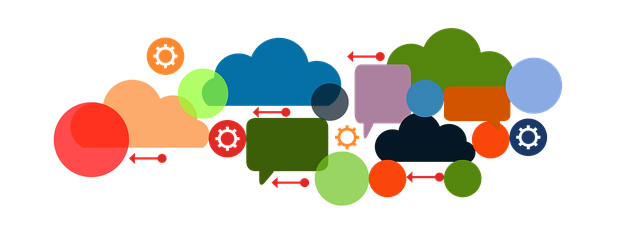AI-driven nutrition monitoring tools, including smart trackers and personalized grocery list generators, have transformed dietary habits by offering tailored insights, recommendations, and automated shopping lists. These algorithms analyze food intake, identify patterns, and predict nutritional deficiencies or excesses based on vast datasets. However, concerns around data privacy and cultural adaptability remain as these devices collect sensitive dietary information and may struggle with diverse preferences or local availability.
In today’s digital age, smart trackers are revolutionizing how we monitor our nutrient intake. With artificial intelligence (AI) leading the way, these innovative devices and apps are transforming dietary habits by offering personalized insights and guidance. By analyzing food logs and health data, AI-powered tools can generate tailored grocery lists, making it easier than ever to maintain a balanced diet. This article explores the rise of AI in nutrition monitoring, its benefits and challenges, and how AI personalized grocery list generators are becoming indispensable for those seeking healthier lifestyles.
- The Rise of AI in Nutrition Monitoring: How Smart Trackers Are Transforming Dietary Habits
- Personalized Grocery Lists: Unlocking Healthy Eating with AI-Powered Tools
- Benefits and Challenges: Enhancing Nutrient Intake Tracking with Technology
The Rise of AI in Nutrition Monitoring: How Smart Trackers Are Transforming Dietary Habits

The integration of Artificial Intelligence (AI) into nutrition monitoring has sparked a revolution in dietary habits. Smart trackers, powered by AI, are now capable of analyzing an individual’s food intake and offering personalized insights to improve their health. These devices use advanced algorithms to identify patterns, understand nutritional needs, and even predict potential deficiencies or excesses. By learning from vast datasets, they can tailor recommendations for a healthier lifestyle, including generating personalized grocery lists that align with specific dietary goals and preferences.
This technology is transforming the way people interact with their diets, making nutrition monitoring more accessible and effective. AI-driven smart trackers provide real-time feedback on meals, ensuring users stay on track with their nutritional plans. They also offer a level of convenience by automating tasks like creating shopping lists based on consumed foods, encouraging adherence to healthy eating habits.
Personalized Grocery Lists: Unlocking Healthy Eating with AI-Powered Tools

Smart trackers, powered by AI, are transforming the way we approach our daily nutrition. One of their most exciting applications is in creating personalized grocery lists tailored to individual dietary needs and preferences. These tools analyze your past purchases, eating habits, and health goals to suggest a customized selection of items for each shopping trip. By leveraging AI algorithms, they offer a convenient and effective solution to the age-old challenge of planning nutritious meals and ensuring you have all the necessary ingredients.
AI personalized grocery list generators go beyond basic recipe suggestions. They consider not only what you eat but also your unique requirements, such as dietary restrictions, allergies, or specific nutrition goals like increasing protein intake. This level of customization ensures that your shopping list is optimized for your health and lifestyle, making it easier to stick to a balanced diet. With just a few inputs, these tools unlock the door to healthier eating habits and help users make informed choices at the grocery store.
Benefits and Challenges: Enhancing Nutrient Intake Tracking with Technology

Smart trackers, powered by technology like AI, offer a host of benefits for those looking to monitor their nutrient intake daily. These tools can analyze dietary patterns, suggest personalized meal plans, and even generate grocery lists tailored to individual needs and preferences. By learning from user data, AI algorithms ensure that meals are balanced and aligned with specific health goals, making it easier to maintain a healthy diet. Moreover, they provide transparency into nutrient deficiencies or excesses, prompting users to make informed adjustments.
However, challenges remain in this rapidly evolving landscape. Data privacy is a significant concern, as personal dietary information can be sensitive. Ensuring the security and ethical use of data collected by smart trackers is crucial. Additionally, while AI personalized grocery list generators are convenient, they may not account for unique cultural food preferences or local availability. Users might face difficulties in implementing suggested lists if they don’t align with their accustomed diets or shopping habits.
Smart trackers, leveraging AI technology, are revolutionizing nutrition monitoring by offering personalized insights into dietary habits. They not only help users understand their nutrient intake but also facilitate healthier choices through AI-powered tools like personalized grocery list generators. While these devices bring numerous benefits, such as improved awareness and enhanced eating habits, challenges remain regarding data privacy and accuracy. As AI continues to evolve in the nutrition space, embracing these innovations can foster a more balanced and healthy lifestyle for all.
